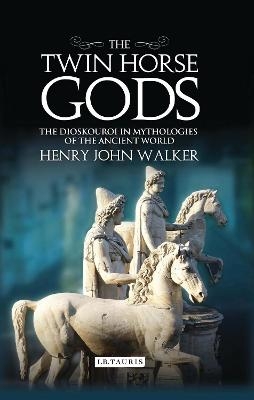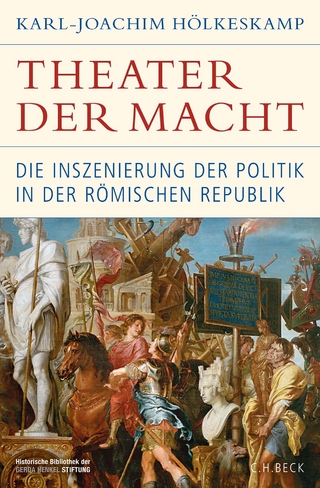
The Twin Horse Gods
The Dioskouroi in Mythologies of the Ancient World
Seiten
2015
I.B. Tauris (Verlag)
978-1-78453-003-7 (ISBN)
I.B. Tauris (Verlag)
978-1-78453-003-7 (ISBN)
The twin deities known by the ancient Greeks as the Dioskouroi, and by the Romans as the Gemini, were popular figures in the classical world. They were especially connected with youth, low status and service, and were embraced by the common people in a way that eluded those gods associated with regal magnificence or the ruling classes. Despite their popularity, no dedicated study has been published on the horse gods for over a hundred years. Henry John Walker here addresses this neglect. His comparative study traces the origins, meanings and applications of the twin divinities to social and ritual settings in Greece, Vedic India (where the brothers named Castor and Pollux were revered as Indo-European gods called the Asvins), Etruria and classical Rome.
In the Bronze and Early Iron Ages of Vedic India, the young horse gods are seen to have markedly similar characteristics to their Greco-Roman counterparts. Quick to come to the rescue of those in trouble, the Asvins are ready to assist the old, the weak and the humble. Charting the parallels and correspondences between these ancient myths, Walker uncovers not a single, universal coda but rather a great variety of loosely related beliefs and practices relating to the sibling deities. He demonstrates, for example, that, just as the Dioskouroi were regarded as being halfway between gods and men, so young Spartans – undergoing a fierce and uncompromising military training – saw themselves as standing midway between animal and human. Such diverse and creative interpretations of the myth seem to have played a central role in the culture and society of antiquity.
In the Bronze and Early Iron Ages of Vedic India, the young horse gods are seen to have markedly similar characteristics to their Greco-Roman counterparts. Quick to come to the rescue of those in trouble, the Asvins are ready to assist the old, the weak and the humble. Charting the parallels and correspondences between these ancient myths, Walker uncovers not a single, universal coda but rather a great variety of loosely related beliefs and practices relating to the sibling deities. He demonstrates, for example, that, just as the Dioskouroi were regarded as being halfway between gods and men, so young Spartans – undergoing a fierce and uncompromising military training – saw themselves as standing midway between animal and human. Such diverse and creative interpretations of the myth seem to have played a central role in the culture and society of antiquity.
Henry John Walker is Senior Lecturer in Classical and Medieval Studies at Bates College, Lewiston, Maine, USA. He is the author of Theseus and Athens (1995) and of Memorable Deeds and Sayings: One Thousand Tales from Ancient Rome (2004).
| Erscheint lt. Verlag | 15.6.2015 |
|---|---|
| Sprache | englisch |
| Maße | 138 x 216 mm |
| Gewicht | 494 g |
| Themenwelt | Geschichte ► Allgemeine Geschichte ► Altertum / Antike |
| Geisteswissenschaften ► Geschichte ► Regional- / Ländergeschichte | |
| Geschichte ► Teilgebiete der Geschichte ► Religionsgeschichte | |
| Geisteswissenschaften ► Religion / Theologie ► Hinduismus | |
| Geisteswissenschaften ► Religion / Theologie ► Weitere Religionen | |
| Naturwissenschaften ► Geowissenschaften ► Hydrologie / Ozeanografie | |
| ISBN-10 | 1-78453-003-4 / 1784530034 |
| ISBN-13 | 978-1-78453-003-7 / 9781784530037 |
| Zustand | Neuware |
| Haben Sie eine Frage zum Produkt? |
Mehr entdecken
aus dem Bereich
aus dem Bereich
Die unglaubliche Geschichte eines antiken Söldnerheeres
Buch | Hardcover (2022)
C.H.Beck (Verlag)
CHF 39,20
die Inszenierung der Politik in der römischen Republik
Buch | Hardcover (2023)
C.H.Beck (Verlag)
CHF 67,20


